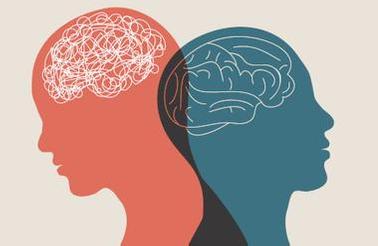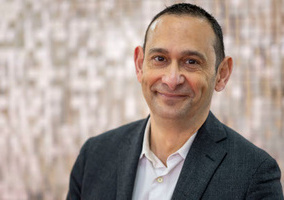This article includes details around postnatal depression. Support is available here.
I knew that I was stressed but honestly, I hadn’t seen myself as ill. Not until I pondered about how much I’d like to harm myself. Even that only triggered a realisation that I should see the GP. Then came the diagnosis: severe postnatal depression with anxiety.
I was livid. Mostly with myself. You see, I was the CEO of a local mental health charity. I had a history of working with mothers experiencing depression; supporting women who were finding motherhood hard. I knew how to stay well. Why wasn’t I well?
I told the GP how furious I was with myself. I worked in mental health. Why couldn’t I apply those principles to myself? My GP told me that she was an experienced GP but if she was ill, she’d need to see another GP. There was no shame.
Leaders are taught to be strong and resilient
We are taught, though, to be strong and resilient. We are taught as leaders to support everyone else and to look after ourselves so that we have more to give.
My mind became a naughty child. It catastrophised. Back at work, my mind would tell me that my other half and my child were dead and then it would encourage me to imagine what that would look like. I couldn’t stop seeing the images in my mind.
I learned two things during that time. The first is that you can know how to look after yourself, but it doesn’t always make a difference. I also learnt that a person could know that a thought process is irrational but not always be able to move on from it.
In the mornings I would drown out my panic attacks through loud music on the way to work. Once at work, I’d text or phone my other half to check they were alive. I learnt to work through the ever-present panic. Sometimes my other half would bring our baby in and for a few minutes, I would feel like I could breathe again. I’d walk across the car park while giving myself a pep talk.
Shoulders down, chin up, breathe and smile. I’d paint my face, so I felt I had something to hide behind and force the happy face on throughout the workday. I felt too vulnerable to show just how ill I was. My imposter syndrome roared at me to hide how I felt; for fear I’d lose my job.
Privilege brings responsibility
Nowadays I’ve learned not to hide. The postnatal depression was eight years ago now. It feels like water under the bridge. It is a horrible nightmare that I’ve woken up from and I’ve finally stopped grieving for the time I lost. I’ve learnt to live in the present as a mother and accept the messy reality of parenting.
My daughter has taught me that I’m probably autistic. Neither of us has been formally diagnosed.
Four years ago, the school phoned to discuss the autistic traits they had observed, and I heard them describe me. I hid that for a couple of years.
However, I want to be my authentic self at work. I realised that as the leader I have a level of security that the rest of the team doesn’t have. I’m privileged. From where I’m standing, that privilege brings responsibility.
I started by telling a couple of the senior team that I trusted. Our relationship improved, making me feel confident enough to tell my board and then the staff team and I went public with it.
The reactions were interesting. Being probably autistic is controversial. The wave of diagnosis makes the ignorant believe that autism is an identity people are choosing.
For me, understanding that I am probably autistic has enabled me to understand how to fit my own jigsaw puzzle pieces together. I finally get myself. I’ve worked with autistic people through my career and so now I apply the approaches I’ve used for years to myself.
Being an honest leader
Being open allows me to check in with a colleague when I am concerned that I may not have communicated clearly, resolving misunderstandings immediately. I used to spend the evening following the conversation round in loops while I worried about my every response. It wasted a lot of time.
Being open has also meant clearer communication with other people who are probably autistic too.
I hope I make people feel safer at work. I want the next generation to see people they recognise at work and understand they will also be fabulous and feel confident to bloom.
Being open about challenges isn’t weak. It’s being authentic and honest. It’s living your values. It’s creating a safe working environment and forging a path for others. Being an honest leader is true servant leadership.
Related Articles











